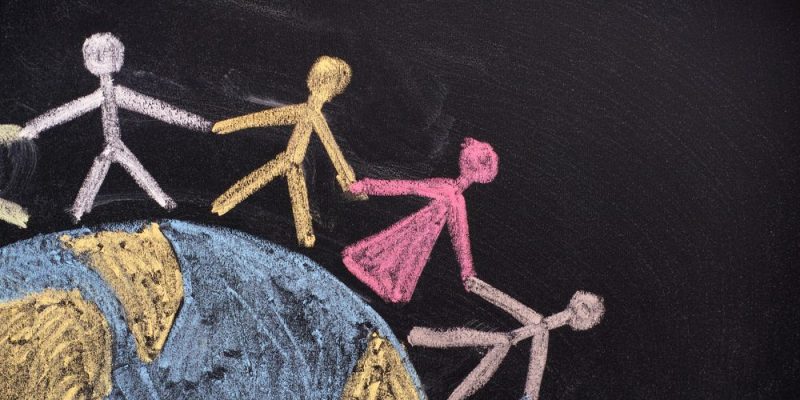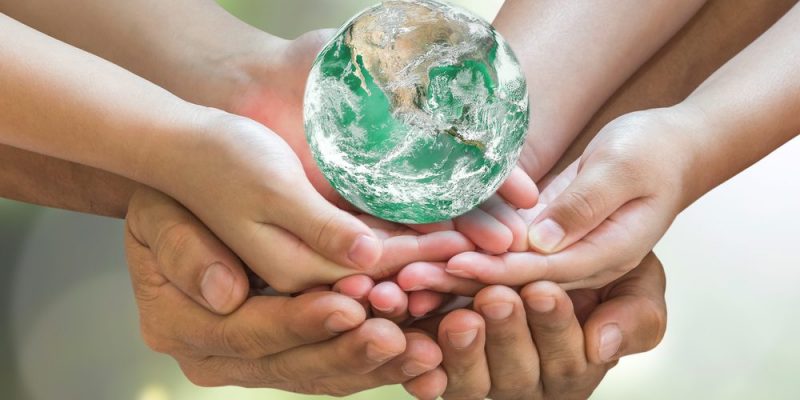We explain what human rights are and what their origin is. Also, its importance and a list of these rights.

What are human rights?
When we talk about human rights or the fundamental rights of the human being, we refer to the set of inherent rights, inherent to the human condition. In other words, to the rights with which every person is born, regardless of their race, nationality, social class, religion, gender or any other type of possible distinction.
Human rights are enshrined in the laws of all nations and international treaties, are indivisible, interdependent, inalienable and universal. This means that they must be fulfilled in their entirety (and not partially), that they must all always be fulfilled, that they cannot be taken away from anyone for any circumstance and that they apply to all human beings without distinction. These rights, furthermore, would be above any type of legal system.
In fact, there are international institutions of global reach that ensure the preservation of human rights and can promote sanctions for countries where they are not given due attention. Violation of human rights is considered a crime that does not prescribe and that must be pursued worldwide.
However, the theory of human rights is not always fully fulfilled, and in today's complex political world there are many situations that prevent it. Cultural resistance, political convenience or loss of faith in the values behind these rights are some of those reasons.
Currently, all States in the world have signed at least one of the numerous treaties regarding universal human rights, and 80% of countries have signed around four of them. If this trend increases, it could lead to a more equal and fair future for human generations to come.
See also: Freedom of expression
Origin of human rights

human rights were first proclaimed during the French Revolution of 1789 under the title “Declaration of the rights of man in society”; although in reality they were the first firm step in a long cultural process that has roots in the different conceptions of “human dignity” rooted in Western and Eastern cultures.
The American Revolution, later, followed the guidelines of “liberty, equality, fraternity” of the French revolutionaries, in favor of founding a more egalitarian nation, although black slavery continued to be a pending item on the list.
The birth of the United Nations (UN), at the end of the Second World War, gave way to the Universal Declaration of Human Rights (1948), an attempt to lay the foundations for a global social order.
Subsequently, various treaties on the subject were approved, such as the European Convention on Human Rights (1950), the International Covenants on Human Rights (1966) and the American Convention on Human Rights (1969). More recent treaties address specific topics such as the rights of children and adolescents, or people with disabilities.
List of human rights

The rights enshrined in the Declaration of Human Rights are thirty. Some of the main ones are:
- All human beings are born free and equal, in dignity and rights. Gifted as they are with reason and conscience, they must behave fraternally towards each other.
- Everyone is entitled to all the rights and freedoms set forth in this Declaration, without distinction as to race, colour, sex, language, religion, political or other opinion, national or social origin, property, birth or other status.
- Every individual has the right to live, to freedom and to personal security.
- No one may be subjected to slavery or servitude. Slavery and the slave trade are prohibited in all their forms.
- No one will be subjected to torture or humiliation, punishment or treatment that is cruel, inhuman or degrading.
- All human beings have the right to recognition of their legal personality wherever they are.
- All human beings are equal before the law and have the right to equal protection of the law, without distinctions of any kind.
- All human beings have the right to equal protection against all forms of discrimination that violate the provisions of this Declaration and against any provocation to such discrimination.
- Every person has the right to protection from competent national courts, and to legal protection against acts that violate their fundamental rights recognized in the constitution or by law.
- No human being may be arbitrarily detained, imprisoned or exiled.
- Everyone has the right to a fair and public hearing by an independent and impartial tribunal, in the determination of his rights and obligations or in the examination of any accusation against him in criminal matters.
document.addEventListener(“DOMContentLoaded”, (e) => {
var sliderContainer, slider;
sliderContainer = document.getElementById(‘block_5d3b00fea458d6b4748ad0f15c514a22’);
if (typeof initSlider !== ‘function’) {
console.log(‘Swiper haven\’t been loaded’);
sliderContainer.className += ‘ fw scroll-snap’;
return;
};
options = {
direction: ‘horizontal’,
speed: 1000,
slidesPerView: ‘auto’,
// slidesPerGroup: 1,
centerInsufficientSlides: true,
// centeredSlides:true,
spaceBetween: 15,
breakpoints: {
720: {
// centeredSlides: false,
// slidesPerGroup: 2,
spaceBetween: 25
},
},
pagination: {
el: ‘.swiper-pagination’,
type: ‘bullets’,
clickable: true
},
}
slider = initSlider(sliderContainer, options);
})





